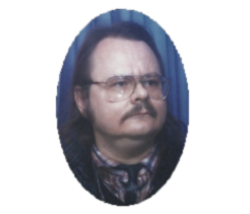Biography:Samuel Edward Konkin III
Samuel Edward Konkin III | |
|---|---|
 | |
| Born | July 8, 1947 Edmonton, Alberta, Canada |
| Died | February 23, 2004 (aged 56) West Los Angeles, California , U.S. |
| Other names | SEK3 |
| Alma mater | University of Alberta |
Notable work | New Libertarian Manifesto (1980) |
| Spouse(s) | Sheila Wymer |
| Era | 20th-century philosophy |
| Region | Western philosophy American philosophy Canadian philosophy |
| School | Agorism Left-Libertarianism Austrian School |
Main interests | Political philosophy Economics |
Notable ideas | Agorism Counter-Economics Grey market/Black market distinction Left-wing interpretation of the thought of Murray Rothbard Minarchism (coining the term) |
Samuel Edward Konkin III (8 July 1947 – 23 February 2004), also known as SEK3, was a Canadian-American left-libertarian philosopher and Austrian school economist. As the author of the publication New Libertarian Manifesto, he was a proponent of a political philosophy he named agorism.
Personal life
Konkin was born in Edmonton, Alberta, to Samuel Edward Konkin II and Helen Konkin. He had one brother named Alan. He married Sheila Wymer in 1990 and had one son named Samuel Evans-Konkin. The marriage ended soon afterward.[1] Although he was an atheist, Konkin was a lifelong fan of C. S. Lewis and J. R. R. Tolkien[1] and an avid fanzine contributor. He was a known figure among science fiction/fantasy fans for his writing on Alarums and Excursions and the like.[2]
Konkin was also notable for his style of dress: "To show his anarchist beliefs, he dressed completely in black, a color associated with that movement since the late nineteenth century".[3]
On 23 February 2004, Konkin died of natural causes in his apartment in West Los Angeles, California . He was buried alongside his father in Edmonton, Alberta.[1]
Political opinions
Konkin considered libertarianism radical. He was an initiator of the Agorist Institute.
Konkin rejected voting, believing it to be inconsistent with libertarian ethics. He likewise opposed involvement with the Libertarian Party, which he regarded as a statist co-option of libertarianism. He was an opponent of influential minarchist philosopher Robert Nozick, and referred to Nozick's devotees as "Nozis".[3]
Konkin presents his strategy for achieving a libertarian society in his manifesto, New Libertarian Manifesto. Since he rejected voting and other means by which people typically attempt social change, he encouraged people to withdraw their consent from the state by devoting their economic activities to black market and grey market sources, which would not be taxed or regulated. Konkin called "transactions on these markets, as well as other activities that bypassed the State, 'counter-economics.' Peaceful transactions take place in a free market, or agora: hence his term 'agorism' for the society he sought to achieve."[3] He also strongly opposed the idea of intellectual property.[3][4]
Konkin was editor and publisher of the irregularly-produced New Libertarian Notes (1971–1975), the New Libertarian Weekly (1975–1978), and finally New Libertarian magazine (1978–1990), the last issue of which was a special science fiction tribute featuring a Robert A. Heinlein cover (issue 187, 1990).
Konkin was an opponent of imperialism and interventionism.[5]
Controversies
In her book Anarchism: Left, Right, and Green, political theorist and anarcho-syndicalist, Ulrike Heider accused Konkin of endorsing historical negationism in his dealing with the Institute for Historical Review (IHR),[6] where he served on the Board of Directors, which included allotting advertisement space to the IHR in New Libertarian,[7] and writing a positive review of James J. Martin's book on Raphael Lemkin, which was published by the IHR.[8] Konkin personally rejected Holocaust denial, but defended the IHR because he believed its freedom of speech was being suppressed.[6][9] However, Konkin's appraisal of Martin's book, specifically the second chapter (in which Martin labelled the claims of the mass murder of Jews as "a well coordinated and orchestrated propaganda assault"[10]) as "a summary of Martin's libertarian-revisionist views of the Second World War" and "the highlight of the book and a valuable booklet on its own" for "the libertarian and the hard-core revisionist",[8] calls that framing into question.
See also
- Victor Koman
- J. Neil Schulman
References
- ↑ 1.0 1.1 1.2 "A Fannish Tribute to Samuel Edward Konkin III". https://www.pulpless.com//sek3/.
- ↑ Trammell, Aaron (2023), The Privilege of Play: A History of Hobby Games, Race, and Geek Culture p.124 New York University Press. ISBN:9781479818402
- ↑ 3.0 3.1 3.2 3.3 Gordon, David (2011-04-01) Sam Konkin and Libertarian Theory, LewRockwell.com; accessed October 28, 2017.
- ↑ Samuel Edward Konkin III Copywrongs, EnemigosdelEstado.com
- ↑ "El Salvador: The War to Come".
- ↑ 6.0 6.1 Heider, Ulrike (1994). Anarchism. San Francisco: City Lights Books. ISBN 978-0-87286-289-0.
- ↑ "New Libertarian #11". KoPubCo. http://www.kopubco.com/nl161.html.
- ↑ 8.0 8.1 Konkin, Samuel (1984), Thrusting the Stake into Lemkin's Bleeding Heart, http://www.ihr.org/jhr/v05/v05p388_Martin.html
- ↑ "The Last, Whole Introduction to Agorism" (PDF). Papers of the Libertarian Left. http://agorism.eu.org/docs/LastWholeIntroductiontoAgorism.pdf.
- ↑ Martin, James J. (1984). The Man Who Invented 'Genocide': The Public Career and Consequences of Raphael Lemkin. Torrence, California: Institute for Historical Review. pp. 40. ISBN 0-939484-14-5.
External links
- Agorism.eu.org has archived Konkin writings and pamphlets in PDF format ()
- Collected writings of Samuel Edward Konkin III ()
- Fanzines by SEK3 ()
- Interview with Konkin ()
- Konkin on Libertarian Strategy, by Murray Rothbard
- Sam Konkin and Libertarian Theory, by David Gordon
- KoPubCo back issues of New Libertarian
- Murray Rothbard, "Konkin on Libertarian Strategy" followed by Samuel E. Konkin, "Reply to Rothbard" at AnthonyFlood.com
- Obituary for SEK3 by Jeff Riggenbach
- Obituary for Sam Konkin by Phil Osborn
 |

